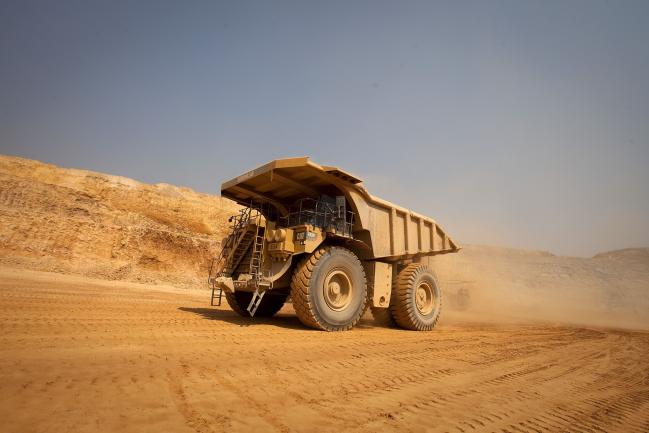(Bloomberg) -- Whether it’s crude oil, copper or iron ore, some important commodities for the global economy have rallied into what may prove an unprecedented demand shock. While bulls say that’s because of anticipated Chinese monetary stimulus, others see another downward correction looming.
Brent crude futures are now trading up about 9% from their year-to-date lows, copper is up almost 4% while iron ore -- a trade that is entirely dependent on China -- has surged by 16%.
The gains are happening partly because traders are looking beyond the coronavirus to what China will do next to keep its economy expanding at the kind of supercharged pace it’s managed for decades.
The CEO of Vitol Group, the world’s biggest independent oil trader, said crude prices are unlikely to get materially worse from here, and should recover in the second half of this year as supply declines and the China gets back to work. The CEO of a shipping firm transporting millions of tons of commodities said the nation’s monetary response to the crisis will make a near-total collapse in charter rates temporary.
“The expectation of the market today is that it’s not going to get significantly worse than what we’ve seen,” Russell Hardy, chief executive officer of Vitol, said in a Bloomberg television interview.
Not all are so upbeat.
Goldman Sachs Group Inc (NYSE:GS). analysts including Jeff Currie are warning of “significant downside risks” to prices because Chinese stimulus won’t improve commodity supply-and-demand until later this year. Commodities are rallying too soon and there’ll be more pain before a boost, they said.
Likewise, Citigroup (NYSE:C) said in a note this week that there’s a risk the market is being too optimistic in pricing in a swift “v-shaped” recovery. With many factories across the country struggling to get back up and running, metal inventories are building up fast in China, and these will need to be worked through before the physical markets tighten back up.
There are also signs infections are spreading more rapidly in countries outside China, with South Korea, Singapore and Japan reporting more cases. The epidemic that emerged in December has infected more than 75,000 people in China.
The disease has contributed to oil demand slumping as economic activity gets curtailed and travel is restricted. It could result in a 200 million-barrel loss in global oil demand in the first quarter, Vitol’s Hardy said on Thursday. That’s about 2.2 million barrels a day over the three months which will need to be adjusted for in subsequent quarters.
After sharp declines for copper in late January, prices have recovered slightly as investors bet that the more severe the impact on demand becomes, the more aggressively Beijing will respond with measures to prop up the economy. In the iron ore market, prices are snapping back strongly as supply disruptions help to offset the demand hit.
“This is certainly temporary,” said John Wobensmith of Genco Shipping & Trading Ltd., which runs 55 ships moving commodities like iron ore, coal and grains. “We think that the second half will spring right back.”
